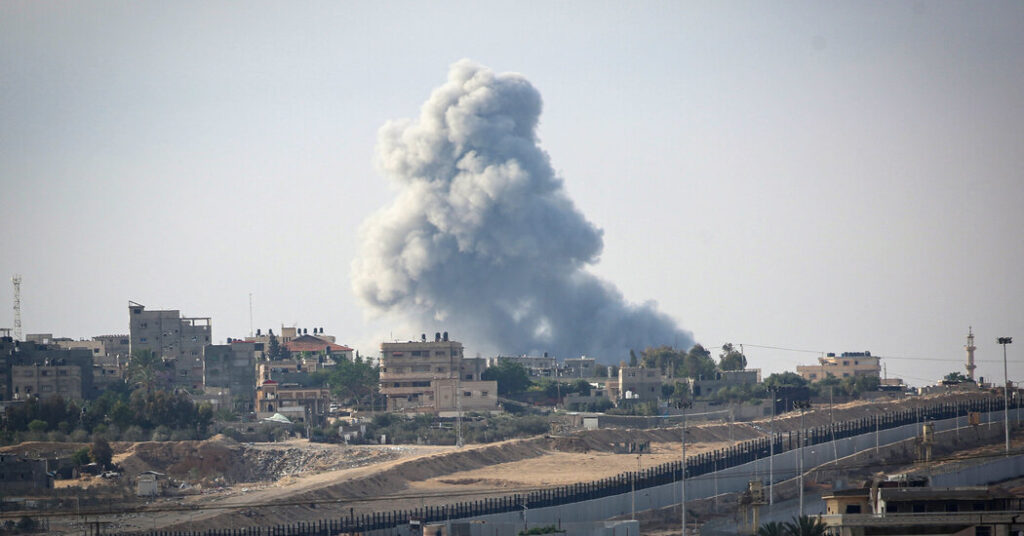South Africa on Thursday urged a U.N. Supreme Court judge to order Israel to halt its ground assault on Rafah in southern Gaza, saying it put Palestinian life in the enclave at imminent risk of destruction.
A hearing was held at the International Court of Justice in The Hague after South Africa last week asked the court to further restrict Israel’s military operations in Gaza. In documents disclosed by the court, South Africa said the Israeli invasion of Rafah had caused “irreparable harm”.
“It is becoming increasingly clear that Israel’s actions in Rafah are part of an end game in which Gaza will be completely destroyed as an area fit for human habitation,” British lawyer Vaughan Lowe told the court. “This is the final step in the destruction of Gaza and its Palestinian people.”
Mr Lowe was part of the South African legal team that presented its case for more than two hours on Thursday.
The South African document said the rights of Palestinians in Gaza were under threat, adding that Israeli control of the two main crossing points in southern Gaza – Rafah and Kerem Shalom – hampered the flow of humanitarian supplies into Gaza and Hospital capacity is at great risk.
“It’s hard to imagine that this situation could get worse, but unfortunately it does,” John Dugard, another member of the South African team, told the court.
Several members of the panel addressed the court in an attempt to build their case, often citing warnings from senior United Nations officials that an attack on Rafah would worsen the situation for civilians and the enclave’s hunger crisis.
Tembeka Ngcukaitobi, a member of the South African legal team, cited statements from senior Israeli officials saying Israel intended to destroy all of Gaza, not just the country’s enemy Hamas.
The legal team also asked the court to order Israel to facilitate access to Gaza for aid workers, investigators, fact-finding missions and journalists.
One of the lawyers, Adila Hassim, showed the court photos of destroyed buildings in Khan Younis, a city north of Rafah, to illustrate the devastation caused by Israeli forces across Gaza. Ms Hassim appeared to be on the verge of tears as she described the deaths of children during military operations.
Israel has strongly denied South Africa’s claims, reiterated that it has no restrictions on the amount of aid entering the enclave and has recently taken steps to increase the amount of food and other supplies entering the enclave, including opening two crossing points in northern Gaza.
Israel also said its latest attack east of Rafah was a “precision operation” targeting only members of Hamas, the terror group that led the Oct. 7 attack that Israeli authorities said killed more than 1,200 people. The Israelis died and some 10 Israelis were captured.
Israel is expected to present its defense in court on Friday. Israel’s Deputy Attorney General for International Law, Gilad Noem, is one of the officials from the Israeli delegation expected to address the court. It’s unclear when the court will rule, but it seems likely soon given that South Africa said on Thursday that its petition was of the utmost urgency because of the ongoing attack on Rafah.
The hearing was part of a case filed by South Africa in December accusing Israel of genocide. In late January, the court ordered Israel to take more steps to prevent genocide but stopped short of calling for a ceasefire. The main case involves genocide charges and is not expected to go to trial until next year.
The court was established under the 1945 founding charter of the United Nations to resolve disputes between member states. It has no means of enforcing its orders, but events in South Africa have intensified international pressure on Israel to rein in its operations in Gaza.
Maris Simmons and Jonathan Rice Contributed reporting.

